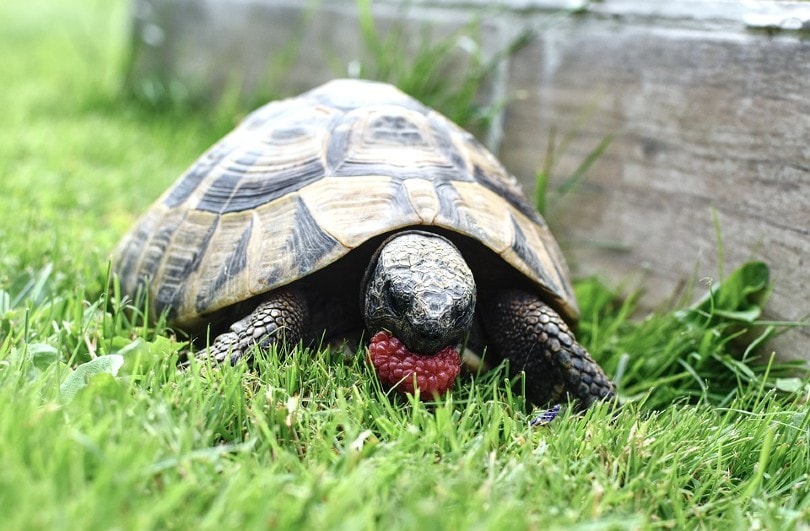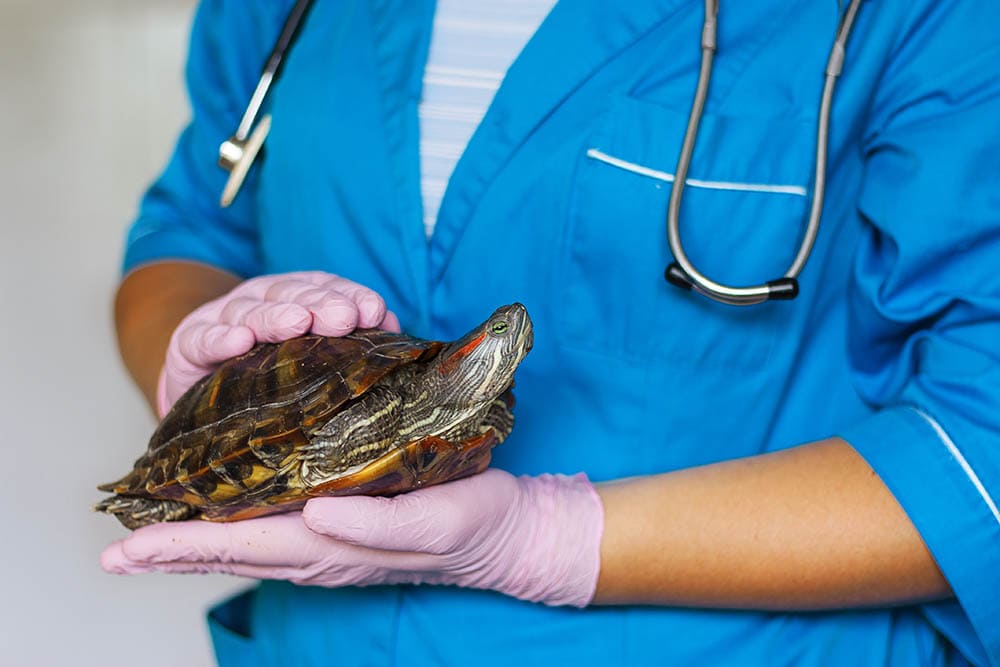
Turtles have been around since the age of dinosaurs. But unlike other reptiles, their diet is incredibly varied and dependent on the species.
Along with what they eat, different turtles have different feeding schedules and amounts that are determined by their species and life stage. Here’s everything you need to know.
Types of Turtles
There are over 300 species of turtles in existence, some of which are kept as pets. Tortoises are also turtles, though there are distinct differences between the two.
The key difference is that tortoises spend their time on land, and turtles are adapted for water, which leads to many of their respective traits. Turtles have water-dynamic shells that aid in swimming, as well as flipper-like legs or webbed feet. Tortoises have rounded and domed shells with club-like forelegs and hind legs that help them support their weight on land.

Common Pet Turtles
Some of the most common turtles kept as pets include:
How Often Should Turtles Eat?
A good diet is essential for turtle health. It is important to choose a diet that suits the species you’re keeping.
Generally, hatchlings and young aquatic turtles should eat daily until they reach adulthood. After that, they can transition to two or three times a week. Keep in mind that tortoises may require more frequent feedings at four or five times per week.

What Do Turtles Eat?
The majority of aquatic turtles are omnivorous, which means they eat both animal protein and vegetable matter. Hatchlings and younger turtles are more carnivorous and tend to transition into more of an omnivorous diet as they age. Your adult turtles will eat primarily plant matter.
Commercial turtle food is a great option to ensure that your turtle is getting the nutrition it needs. Pelleted foods come in different sizes and some float easily for aquatic turtles. It’s important to clean uneaten food out of the water, however, as it can make your turtle sick.
In the wild, some turtles eat fish and may benefit from the occasional fish in captivity. Most pet stores offer feeder fish like guppies or minnows for turtles, which can be balanced with the commercial diet. Another option is earthworms, mealworms, crickets, grasshoppers, or similar feeder insects and invertebrates with a commercial diet.
Wild-caught fish, amphibians, insects, or invertebrates should be avoided, as they can carry parasites or bacteria that can harm the turtle. Raw meat like beef or chicken should also be avoided, as it does not contain the appropriate balance of calcium and phosphorus your turtle needs.
As far as plant matter, turtles thrive on dark leafy vegetables like lettuce, mustard greens, collard greens, Swiss chard, endive, dandelion greens, and turnip greens. On occasion, turtles may have enticing foods like water lilies, duckweed, or red bell pepper.
Depending on the species, you may need to supplement your turtle’s food with a multivitamin. Be sure to consult with your vet to see what’s appropriate for your species.
Turtles can get bored easily, so offering variety in your turtle’s meals is important. That said, always check the safety of plants or animal foods to make sure they’re not toxic for your turtle.
Conclusion
Turtles make great pets and are relatively low maintenance. Most species only eat a few days a week as an adult, but it’s crucial that you provide an appropriate diet for the species and avoid over- or underfeeding your turtle for optimal health.
Featured Image Credit: Dimitris Vetsikas, Pixabay









